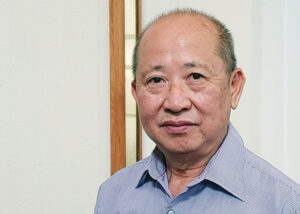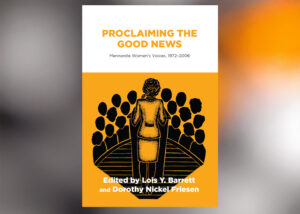I’m surrounded by a legion of internal voices telling me I am not the pastor I should be. I’m not enough of a leader, not caring enough, not informed enough, not clear, not decisive, not doing enough. My soul cowers at the possibility that the roaring cacophony in my head is correct. Our current moment in history has laid bare my insecurities, deficiencies and anxieties of being a pastor.
I am not alone.
In the middle of a pandemic, I find myself worrying about another epidemic quietly spreading across North America: pastor burnout.
Already in 2014, Forbes listed “pastor” as the fifth most difficult leadership role in North America. An April 2021 WayBase survey of Canadian churches found that half of church leaders were struggling in at least one significant area of their life during COVID-19; only 13 percent described themselves as thriving.
Pastors have had to navigate new ways of gathering people for worship, adhere to changing restrictions, and find fresh ways of providing pastoral care and discipleship opportunities. However, it’s not just the challenge of implementing new methods for ministry that is wearing on pastors. It is also the new relational challenges.
As pastors scramble to reimagine systems and structures to facilitate the work of the church by utilizing new methods and technologies, they find themselves navigating intense differences of opinions. Conversations about reopening church buildings are more contentious than expected because of the politicization of the disease. Conversations about racial equality—which have always been difficult, but in some contexts ignorable—are now front and centre, and impassioned. The loss of a shared sense of reality and the prevalence of conspiracy theories threaten our congregational life together.
Dealing with any one of these issues would be a lot to handle for any leader, but all of these issues have collapsed into one moment. As a result, pastors are finding themselves exhausted, frustrated, uncertain and stretched thin.
Every conversation I have with counsellors, coaches, consultants and spiritual directors lays bare just how tired pastors are. Some have left their positions while others are retiring early. Some are talking quietly about it with spiritual directors and family. I fear that what we are seeing in this moment is just the beginning. What if the real impact won’t be seen for another year or two?
I don’t say any of this to peddle in fear-mongering. Instead, I draw attention to this reality with the hope that clearly articulating our current situation will help to avoid a default future that will arrive if we change nothing. A default future where the church is more divided and unable to come together in moments of social crisis with the creativity of the God of resurrection hope. By understanding better our current reality we can find the energy to change course and move toward something new. In this case, a more sustainable vision of ministry for pastors.
Inherent in this work is grace. Pastors and congregations need to extend grace to themselves and to each other. There are times to work and times to rest. Times to give and times to receive. Times to know what to do and times to admit that we don’t. May we, as ambassadors of the grace of God, allow this grace to cover us as well.
Rick Neufeld is is the director of Leadership Ministries for Mennonite Church Manitoba.
Read more From Our Leaders columns:
Courageous stories
‘Follow that wild turkey!’
Dreaming of a good night’s sleep
Helping each other follow Jesus
Called to hear









Leave a Reply
You must be logged in to post a comment.